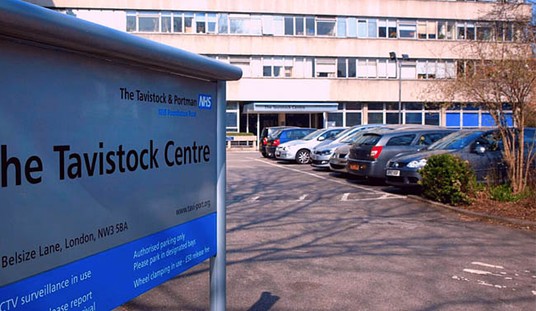Since 1992, the polling firm Gallup has been asking Americans for their views on the two major parties. According to this pollster, never before have the public’s opinion of both the Democratic and Republican Parties been so sour.
Since the midterm elections, when the GOP’s favorability rating spiked to a relative high of 42 percent, the public’s approval of the Republican Party has fallen by five points. Today, only 37 percent of the public views the GOP favorably.
Similarly, only 39 percent of respondents view the Democratic Party favorably, up a point from the record low of 36 percent favorability recorded just after the 2014 midterm elections.
Gallup revealed that this is the first time in history that both parties have received a favorability rating of less than 40 percent. 53 percent of the American public has a negative view of the GOP and 51 percent view the Democratic Party unfavorably.
“For some time, numerous Gallup trends have been showing Americans largely displeased with government’s performance and leadership,” wrote Gallup analyst Lydia Saad. “Through it all, at least one political party was reviewed well, but now — perhaps because of the constant brinksmanship going on between Obama and the Republican Congress, but maybe for other reasons — both parties are floundering.”
There is an opportunity here for an enterprising group of entrepreneurs interested in developing a third party nominee (note: not a third party, but an independent candidate), but no one is taking up the challenge.
By this point in the 2012 election cycle, the group Americans Elect already had funding, office space in New York City and Washington D.C., a web presence, and a plan to get a third party candidate on the ballot in all 50 states. The system that Americans Elect devised was rather revolutionary and, if it had worked, might have served as a model for future candidates and campaigns.
“Any registered voter can sign up online to be a delegate,” ABC News reported in 2011. “Delegates will then draft candidates and vote for their nominee in May and June.”
Of course, as Dave Weigel reported, Americans Elect ended up being a $35 million boondoggle. This was never a serious enterprise designed to build up a candidate for the presidency but a vehicle for wealthy investors to promote their own political agendas. Americans Elect was a successor to Unity08, an organization that was designed to draft former New York City Mayor Mike Bloomberg into the presidential race. Both enterprises failed for similar reasons: An embarrassing lack of enthusiasm from the public.
Having again failed to generate any significant interest in their candidate promotional vehicle for independent presidential candidates, Americans Elect suspended operations in the spring of 2012.
That organization was always going to encounter difficulties while promoting a third way in an election cycle with an incumbent president seeking reelection. People often tend to inspire more favorable ratings than do the parties with which they are affiliated. But Americans Elect was smart in that it emphasized candidate over platform. In America, third party enterprises coalesce around a personality more than they do on a set of ideas. More often than not, third party movements rise and fall along with the individual around which they are organized. In a non-incumbent cycle like 2016, and particularly with the prospect of a Bush/Clinton general election reasonably strong, an Americans Elect-style movement might enjoy some more success than it did in 2012.
But such a movement would have to be genuinely organic. Unlikely Americans Elect, an organization saturated with hedge fund money and dedicated to the thinly veiled mission of providing legitimacy to economically conservative Democrats, a real third-way movement might generate some interest in the electorate.







Join the conversation as a VIP Member